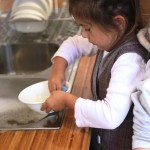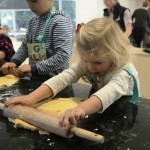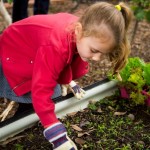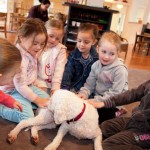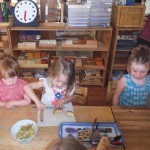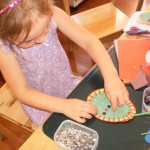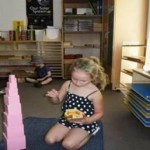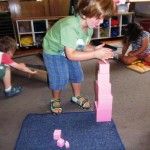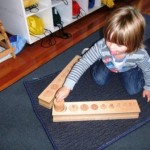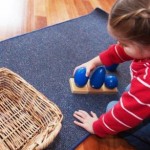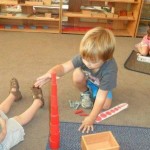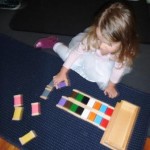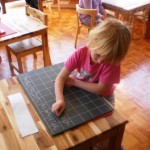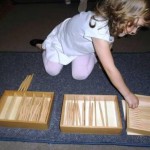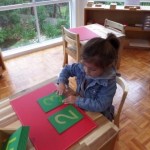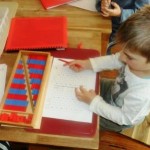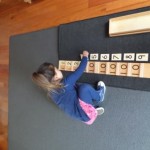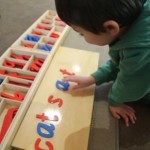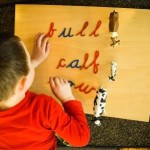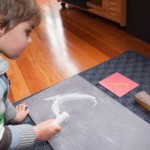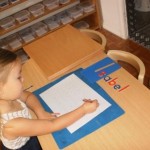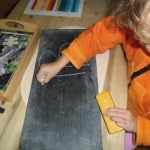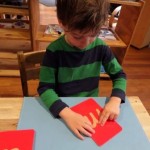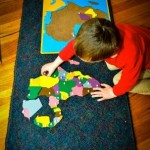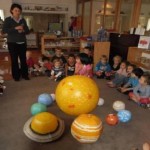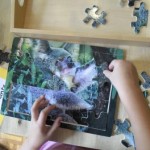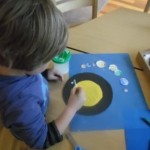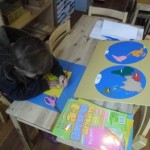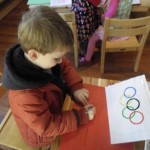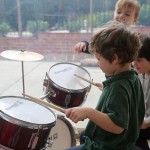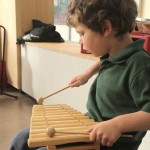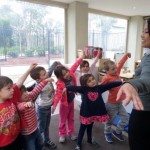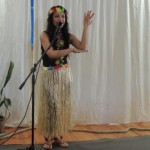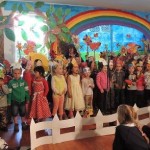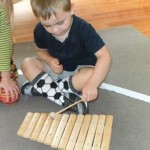Montessori and Your Child
Piccolos Montessori Curriculum
Designed by Dr Maria Montessori who was a scientist and educationalist, this method of education is based on her observations of children for over 40 years.
The term ‘respect the child’ underpins her methodology and success of this world renowned and proven method of early education.
Practical Life
- Kitchen Preparation
- Food Preparation
- Caring for the Garden
- Caring for Animals
- Independent Skills
- Fine Motor Skills – Sewing
Enriches a child’s self-esteem through ‘hands on’ and ‘real life’ experiences developing
Independence: Fostered through activities that teach care of self and care of personal hygiene.
Life Skills: Promoted through learning to care for others, animals and the environment.
Co-ordination and manual dexterity: Is encouraged by the development of fine motor skills practiced during hands on activities and daily tasks.
Confidence: Is the development of an ‘I can try to do it for myself’ attitude.
Concentration: This is developed as a direct result of your child being interested in the daily tasks and activities they are involved in.
Sensorial
Dr Montessori believed these are the ‘keys’ to exploration and intelligence. Through the senses children study the environment around them. Sensorial exercises and activities promote the following:
Refinement of the senses: Promotes awareness of all our senses (touch, pressure, weight, temperature, smell etc.
Expansion of language: Promotes the use of words associated with awareness (short , tall, soft, hard).
Improves the skill of differentiation: The child learns to make distinctions in the environment and starts to recognise shapes, sizes and patterns. This is a skill required for later reading and writing.
Promotes Visual development: It helps the child acquire: clear, conscious, information about the things around them. Children acquire the skill of classification and order in their world.
Mathematics
Mathematics is the science that deals with the logic of shape, quantity and arrangement. Mathematics is all around us, in everything we do. It is the building block for everything in our daily lives, including phones, architecture (ancient and modern), art, money, engineering, music and even sports.
Develops ‘the concrete’ powers of reason: These are the tangible objects that a child can touch and feel.
Develops ‘the abstract’ powers of thinking: This is the language of symbols and patterns.
Aids the growth and development of the intellect: Gained through ‘hands on’ concrete understanding that creates a platform for abstract thinking.
Encourages concentration: Through activities designed to hold on to the interest of the child. Materials used pace the child through the steps to the understanding concepts such as the decimal system, subtraction, multiplication and division.
Develops the ability to problem solve: Many of the activities are self-correcting and colour coded. This aids the child to correct their own mistakes thus giving them the confidence to try things out themselves.
Supports an orderly way of thinking: Through mathematical patterns order is perceived by the child. The Montessori mathematic activities encourage visual patterning and sequencing.
Language
Maria Montessori said: “To talk is in the nature of man”.
“Language and the process of thinking are intrinsic”.
Language and literacy provides the tools of communication. We need to learn how to read and write in order to function in our society.
Spoken language: Is developed through our cultural heritage. Children learn how to articulate and pronounce words correctly in order to be understood by others.
Expression through vocabulary: Children learn to verbalize their feelings and emotions. They learn to understand the feelings of others.
Phonetic awareness: Is encouraged to help children speak clearly, understand the symbols of sound and piece together words.
Pattern recognition: Children soon discover the symbols and patterns associated with written language and groups of word. Interpreting double phonograms expands the child’s understanding and ability to read.
Development of reading and writing skills: Through phonetic awareness and ‘hand eye’ activities children learn to read as they learn to write. Learning to read and write is not a chore – it is a step by step process that leads us on a rich journey of life.
Development of literacy skills: Children are opened to a world of understanding, discovery and imagination through film, books, plays, skits, concerts and storey telling.
Culture
“The aim is not to create a cultural mind, but a spiritual soul based on reality. Therefore, history should not be taught as a collection of dates and places. But rather be approached to arouse gratitude and appreciation. This gratitude should be aroused first to the law and order of the universe and the preparation of the environment into which human beings came.”
Dr. Maria Montessori
Promotes a sense of identity: A feeling of belonging to a country, region, and local community motivates participation within society.
Enhances personality: As the child adapts to their own culture, they become independent, valued members of their society.
Spatial awareness and orientation skills: Are developed through map reading and puzzles depicting the 7 continents and countries within these. Children develop a global perspective with an appreciation for the peoples and societies we share our planet with. They learn about the planets and our solar system and just how the vastness of the universe fits together in wonderment.
The sense of time and passage: Developed through the foundation of the historical perspective. Children love to learn about past and present societies, culture and dress.
Appreciation for nature and our environment: Through Biology (the study of plants) and zoology (the study of animals) children enjoy this discovery and become interested in our natural world.
Development of language and vocabulary: This is enhanced by the in-depth knowledge subjects undertaken across the culture curriculum.
Enhancement of conceptualisation skills (the act of creating something by thinking): Children learn how to create mental pictures of things. This is developed through exposure to ‘big ideas’ and promoted by learning concepts such as the life cycle of the frog, the life cycle of the butterfly, how seeds grow, why it rains etc.
Development of imagination: Imagination is enhanced by exposure to our world and experience within it. Through science children learn the capacity to experiment with the tangible and the intangible. Why do things float, how does electricity work, why does hot air rise etc.
Development of creativity: This is developed through knowledge of the arts and great artist from the past. Creativity is learnt and practiced through experience and exposure to our world.
Appreciation for Music and Dance: This facilitates cognitive function and movement. It also promotes self-expression, assertiveness and the enjoyment of individual or group participation. The language of sound inspires children to play musical instruments.
Music and Dance
It is not only something you hear and do but what you feel. It is something your soul can reach out and touch. Complex or simple, fast or slow, loud or soft. It is the one language spoken by all cultures and races of people in our world.
Appreciation for Music and Dance: Music and dance are part of our cultural heritage. Children are exposed to all types of music from their early years. Love of music is enhanced by the quality and type of music a child is exposed to.
Enhances memorisation skills: Children quickly learn the words to songs if they enjoy a catchy tune.
Facilitates cognitive function and movement: Children experience the emotion of sound that inspires them to move naturally. They enjoy a time of relaxation lead by the melodies and rhythm of sound.
Promotes self-expression and assertiveness: The enjoyment of individual or group participation is aroused. The language of sound inspires children to play musical instruments and learn different dance styles.
Sports
Sporting activities underpin our physical ability for movement and healthy bodies in order for us to function to our full capacity as a human.
Promotes gross motor skills: Children need to develop their gross motor skills to become strong and co-ordinated. These are practiced daily during sports routines, exercises and free play.
Encourages physical fitness: Children need to be fit in order to be healthy. Children enjoy daily exercise through participation in physical activities. While having fun at the same time they flourish on the experience.
Encourages self-confidence: This is developed as a child takes control of their body and its ability to perform.
Endorses co-operation: This is a valued concept and required when participating in teams sports and exercises. Children learn to work with others to achieve a better result.
